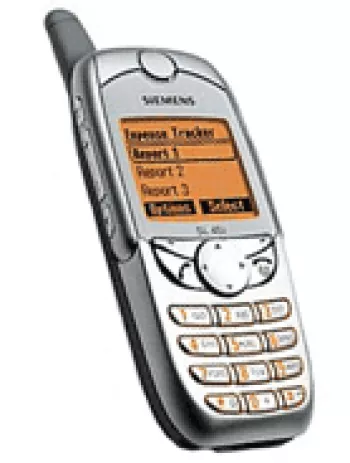
Introduction to Siemens A62
The Siemens A62 is a classic feature phone that was announced in the fourth quarter of 2004. It stands as a testament to the durability and simplicity of mobile phones before the advent of smartphone technology. This device was designed for basic communication purposes and reflects an era when phones were primarily used for calling and texting rather than the multifunctional smartphones we know today. Despite its limited features by modern standards, the Siemens A62 offered functionality and convenience to users in the early 2000s.
Network Capabilities
The Siemens A62 operated over GSM networks, specifically supported GSM 900, 1800, and 1900 bands. This made it versatile enough for use in various regions, particularly in Europe, Africa, and Asia. The device supported GPRS Class 8, enabling basic data transmission that allowed users to access WAP services, an early form of internet browsing on mobile phones. However, it did not support EDGE technology, which was an early high-speed mobile data standard.
Design and Display
With dimensions of 101 x 45 x 19 mm and weighing just 76 grams, the Siemens A62 was compact and lightweight, making it easy to carry and handle. It featured a CSTN display with 4096 colors, offering a minimal color range and a resolution of 101 x 80 pixels. The display size was modest, aligned with the device's purpose as a basic communication tool, and was sufficient for navigating phone menus and reading text messages. The design of Siemens A62 was practical, featuring a Mini-SIM slot and available in two colors: Denim Blue and Mystic Purple.
Battery Life
One of the highlights of the Siemens A62 was its battery efficiency. The device housed a removable Li-Ion 700 mAh battery. It offered a standby time of up to 250 hours and a talk time of up to 5 hours. This long-lasting battery life was a beneficial feature for users who needed reliable communication without the frequent need to recharge, a clear advantage at a time when mobile phone charging infrastructure was not as developed as today.
Memory and Storage
The Siemens A62 came with very limited memory capabilities by modern standards. It did not have a card slot for expandable storage. The inbuilt phonebook could store up to 50 entries, which was a reasonable number for its time. The call record capacity included storing up to 10 dialed, 10 received, and 10 missed calls, helping users keep track of their basic calling activities without any clutter.
Sound and Alerts
The sound functionalities of the Siemens A62 were quite straightforward. It did not include a loudspeaker or a 3.5mm audio jack, which limited the device's multimedia capabilities. However, it supported vibration alerts and downloadable polyphonic ringtones, which provided users with personalization options within the context of the device's capabilities. The absence of modern audio options reflects the device's focus on essential communication functions.
Communication Features
For communication, Siemens A62 supported SMS and EMS messaging standards, allowing users to send and receive text messages, which were the primary mode of non-verbal communication at the time. The WAP 1.2.1 browser enabled limited web browsing capabilities through a simple interface, suitable for accessing basic information online. The device did not feature WLAN, Bluetooth, or radio capabilities, underscoring its role as a basic phone without modern connectivity options.
Entertainment and Applications
Even with its limited features, the Siemens A62 provided some entertainment through pre-loaded games like MagicPicture and Stack Attack, and it also supported downloadable games, providing leisure options for users. However, it did not support Java applications, which limited the extent to which users could expand the device's functionality with additional apps.
Conclusion
The Siemens A62, although discontinued, remains an example of early mobile phone design that emphasized simplicity, reliability, and basic functionality. While it lacks the advanced features we expect in modern smartphones, its significance lies in its role at a time when mobile communication was just beginning to take shape globally. Reflecting on devices like the Siemens A62 offers insight into the evolution of mobile technology and the incredible advances achieved since its release.
Key Features of Siemens A62
- Lightweight design with a weight of just 76 g (2.68 oz)
- Compact dimensions for easy handling: 101 x 45 x 19 mm
- GSM technology supporting multiple bands: GSM 900 / 1800 / 1900
- Color display supporting 4096 colors
- GPRS Class 8 for basic data connectivity
- Supports SMS and EMS messaging
- Offers downloadable polyphonic ringtones
- Pre-installed games with option to download more
- Removable Li-Ion 700 mAh battery with up to 250 hours stand-by time
- Available in two colors: Denim Blue and Mystic Purple
Disadvantages of Siemens A62
- Limited Display Colors: Only supports 4096 colors on the CSTN display.
- No EDGE Support: Lacks higher-speed data connectivity, offering only GPRS Class 8.
- No Camera Feature: The phone does not include a built-in camera.
- Limited Sound Capabilities: No loudspeaker and no 3.5mm headphone jack.
- Lack of Connectivity Options: No WLAN, Bluetooth, positioning, or radio capabilities.
- Very Limited Memory: Phonebook limited to 50 entries and lacks expandable memory card slot.
- No Java Support: Cannot run Java applications.
- Discontinued Model: No longer available for purchase or supported with software updates.
- Basic Messaging Features: Supports only SMS and EMS, with no support for more advanced messaging formats.

View Also
More Phones
All Rights Reserved +13938 Phones © Mobilawy 2025

























